In the ever-evolving landscape of kitchen appliances, the contact grill has emerged as a staple in modern kitchens. As consumer preferences shift towards convenience and health-conscious cooking methods, the demand for these versatile cooking tools has surged. This article delves into the intricacies of the contact grill market, exploring the factors that have propelled it to the forefront, the trends shaping its demand, and the benefits of partnering with a private label supplier. We’ll also share some success stories and offer insights into the future outlook for the contact grill private label sector.
Understanding the Contact Grill Market: A Snapshot
The contact grill market has emerged as a favorite among cooking enthusiasts for its convenience and ability to achieve that perfect sear on meats. To get a clear picture of this dynamic sector, let’s take a closer look at the current state of the contact grill market.
Contact grills, also known as flat-top grills or griddles, have gained popularity due to their compact size and versatility. They are designed to cook food with even heat distribution, which is particularly appealing for those who love outdoor cooking but prefer the ease of an indoor appliance. The market is segmented by product type, with the most common being the countertop models, followed by portable and built-in units.
Consumer preferences have been shifting towards healthier cooking methods, and contact grills fit this trend perfectly. They allow for grilling without the need for additional fats, making them a healthier alternative to traditional grilling methods. This health-conscious consumer base has been a significant driver for the growth of the contact grill market.
Geographically, the contact grill market is witnessing robust growth in North America and Europe. The U.S. and Germany are among the leading markets, with a high penetration of contact grills in household kitchens. This can be attributed to the region’s preference for convenience, innovation, and the premiumization of kitchen appliances.
One of the key trends in the contact grill market is the increasing demand for smart and connected appliances. Consumers are looking for kitchen gadgets that not only simplify cooking but also integrate with their smart home ecosystems. Contact grill manufacturers are responding by introducing models with built-in temperature control, Bluetooth connectivity, and even apps that guide users through the grilling process.
Another significant trend is the rise of eco-friendly and sustainable products. As consumers become more environmentally aware, there’s a growing interest in appliances made with sustainable materials and those that are energy-efficient. This has led to the development of contact grills that are not only easy on the wallet but also on the planet.
When it comes to market dynamics, the contact grill industry is witnessing a surge in private label offerings. Private label brands are becoming a popular choice for consumers seeking quality products at competitive prices. These brands often cater to niche markets and can be found in a variety of retail channels, from large home improvement stores to specialty kitchen shops.
Understanding the competition is crucial for any player in the contact grill market. Leading brands are investing heavily in marketing and product innovation to maintain their market share. However, the entry of private label suppliers has introduced new levels of competition, as these brands offer unique value propositions and can often provide faster turnaround times for custom orders.
The contact grill market is also influenced by seasonal trends. For instance, the summer months see a surge in demand as people look to prepare outdoor meals. This seasonal fluctuation in demand requires manufacturers and suppliers to be agile in their production and supply chain management.
In terms of technological advancements, there’s a continuous push towards improving the cooking experience. Features such as non-stick surfaces, adjustable heat settings, and removable drip pans are becoming standard in the latest contact grill models. These innovations not only enhance the cooking experience but also make cleaning and maintenance easier.
As the contact grill market continues to evolve, it’s important to note that consumer preferences are highly influenced by culinary trends. The popularity of different types of cuisines, such as barbecue or gourmet grilling, can have a direct impact on the types of contact grills that are in demand.
In conclusion, the contact grill market is a rapidly growing sector with a diverse range of products and trends. As consumers seek healthier, more convenient, and environmentally friendly cooking solutions, the market is poised for continued expansion. For those looking to enter the market or expand their offerings, staying abreast of these trends and understanding the dynamics of the private label segment is key to success.
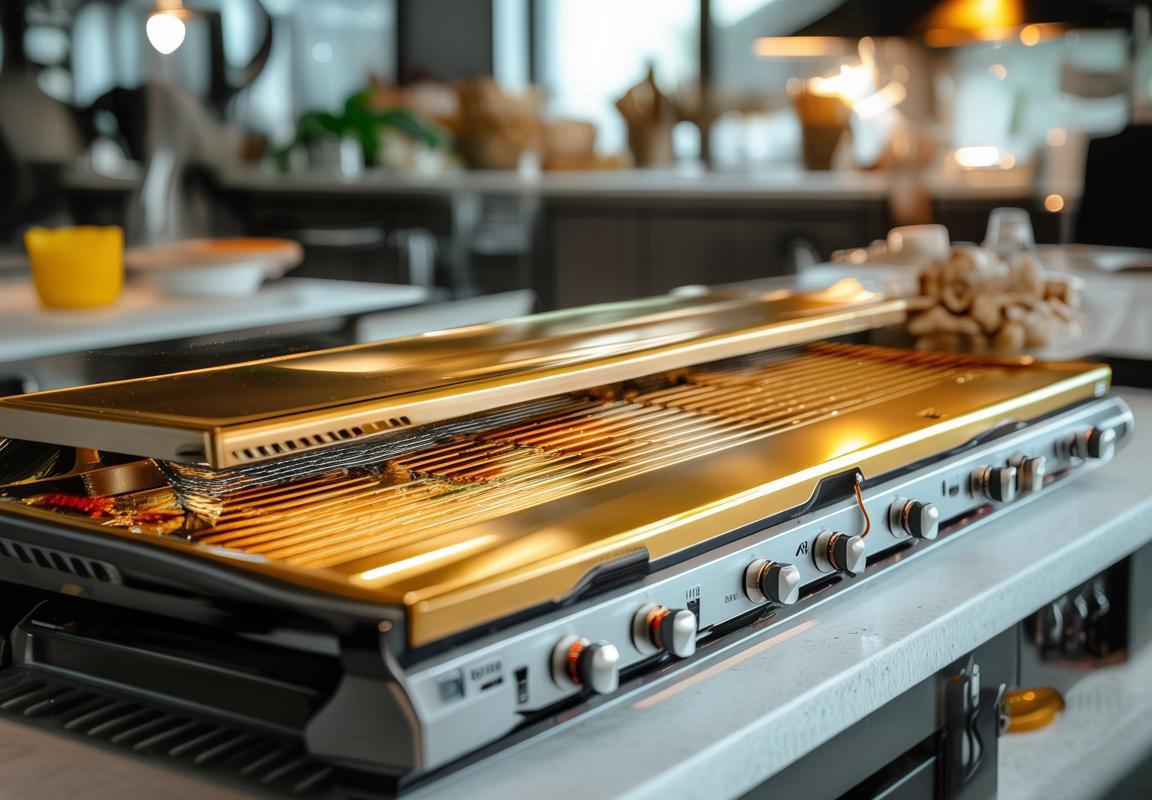
The Rise of Private Label in Kitchen Appliances
The landscape of the kitchen appliance industry has undergone a significant transformation, with private label products emerging as a formidable force. This shift is not just a trend but a strategic move by manufacturers and retailers to cater to the evolving consumer demands. Here’s a closer look at how private label has gained traction in the kitchen appliances market.
Private label brands have long been associated with generic, no-name products, often seen as a budget-friendly alternative to established national brands. However, the narrative has changed dramatically. Today, private label appliances are not just affordable; they are often as feature-rich and reliable as their branded counterparts.
One of the primary reasons for the rise of private label in kitchen appliances is the increased consumer interest in value for money. In a market where prices can vary widely, consumers are looking for high-quality products without the premium price tag. Private label brands have stepped in to fill this gap, offering competitive pricing while maintaining quality standards.
Retailers, too, have recognized the potential of private label. By offering their own branded appliances, retailers can create a unique value proposition that differentiates them from competitors. This not only allows them to increase sales but also enhances customer loyalty. Retailers can tailor their private label products to match the preferences of their target demographic, ensuring that they have a product range that resonates with their customers.
The quality of private label products has also improved significantly. Manufacturers have invested in research and development to ensure that their private label appliances are not just cost-effective but also durable and efficient. Advanced technology and innovative designs have been integrated into these products, making them appealing to consumers who seek both functionality and style.
Another factor contributing to the rise of private label in kitchen appliances is the growing importance of sustainability. Consumers are increasingly conscious of the environmental impact of their purchases, and private label brands often have a more sustainable approach to production and packaging. This eco-friendly stance is attracting environmentally conscious shoppers who are looking for appliances that align with their values.
In the competitive kitchen appliance market, private label brands have also gained an edge through strategic partnerships. These partnerships allow private label manufacturers to leverage the expertise and distribution networks of established brands, thus reaching a wider audience. This symbiotic relationship benefits both parties, with private label brands gaining credibility and established brands expanding their market reach.
Moreover, the rise of e-commerce has played a pivotal role in the growth of private label. Online retailers have embraced private label brands, making them easily accessible to consumers worldwide. The convenience of online shopping combined with the affordability and quality of private label products has made them a popular choice for many.
From the perspective of consumers, the convenience of having a wide range of private label products in one place cannot be overstated. It simplifies the shopping experience, allowing customers to compare and choose the best options for their needs and budgets. This convenience factor has significantly contributed to the popularity of private label brands.
In terms of marketing, private label brands have been able to adapt quickly to changing consumer trends. They can introduce new products and features at a faster pace, ensuring that they stay relevant in a rapidly evolving market. This agility is a testament to the adaptability and responsiveness of private label manufacturers.
The rise of private label in kitchen appliances is not a temporary trend; it is a strategic shift that is here to stay. With continued innovation and a focus on quality, private label brands are poised to capture a larger share of the market. The consumer’s preference for value, the retailer’s desire to differentiate, and the industry’s commitment to sustainability all converge to create a perfect storm for the continued growth of private label products in the kitchen appliance sector.
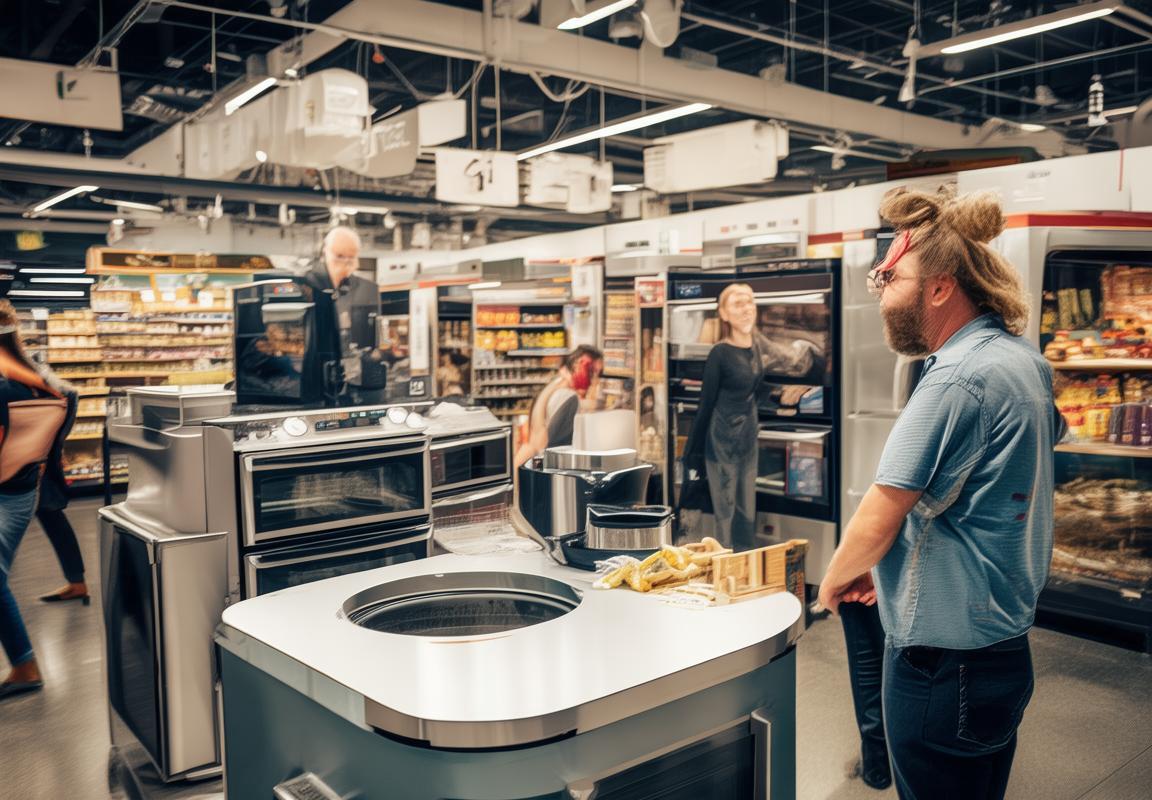
Why Europe and the U.S. Are Key Markets for Contact Grills
The European market has long been a hub for innovation and consumer demand in the kitchen appliance sector. This has created a fertile ground for contact grills to thrive. With a culture that values convenience, health, and culinary experimentation, Europe has seen a significant rise in the popularity of contact grills. These compact, easy-to-use appliances offer a quick and healthy alternative to traditional cooking methods, which aligns perfectly with the lifestyle preferences of many European consumers.
In the U.S., the landscape is slightly different but equally conducive to the growth of contact grills. The American kitchen has always been a place for culinary exploration, and contact grills have found a niche among health-conscious consumers and those seeking to diversify their cooking techniques. The market is driven by a blend of factors, including the trend towards healthier eating habits, the convenience of single-serve cooking, and the desire for unique flavor profiles that contact grills can deliver.
The European market is characterized by its diverse demographics and varied culinary traditions, which means that contact grills can cater to a wide range of preferences. From the Mediterranean regions, where olive oil and herbs are staple ingredients, to the Northern countries where simplicity and efficiency are key, contact grills offer a versatile solution that can be easily integrated into various cooking styles. The European Union’s focus on sustainability and energy efficiency also plays a role, as contact grills are often seen as a more eco-friendly option compared to traditional grilling methods.
In the U.S., the market is influenced by a variety of factors, including the rise of foodie culture and the increasing popularity of outdoor cooking. Contact grills fit well into the outdoor grilling season, offering a convenient way to enjoy grilled foods without the need for a traditional barbecue setup. Additionally, the American market has seen a surge in the demand for healthier cooking options, which contact grills provide through their ability to cook with minimal oil, thus reducing the calorie content of dishes.
The European and U.S. markets also benefit from strong distribution networks and retail channels that are well-versed in marketing and selling kitchen appliances. Retailers in both regions have been quick to recognize the potential of contact grills and have invested in showcasing these products prominently in their stores. This has helped in creating awareness and driving sales.
Moreover, the integration of technology into kitchen appliances has been a significant trend in both Europe and the U.S. Contact grills that come with digital controls, temperature settings, and even Bluetooth connectivity to smartphones are becoming increasingly popular. This tech-savviness among consumers in these regions has opened up new opportunities for contact grill manufacturers and private label suppliers to innovate and offer products that cater to the modern kitchen.
Another factor that makes Europe and the U.S. key markets for contact grills is the presence of a strong competitive landscape. This competition encourages innovation and drives down prices, making contact grills more accessible to a broader consumer base. The presence of well-established brands and the entry of new players have contributed to a dynamic market that is constantly evolving.
In conclusion, the European and U.S. markets for contact grills are driven by a combination of lifestyle preferences, health consciousness, technological advancements, and a competitive retail environment. These factors have created a perfect storm for the growth of contact grills, making them a key segment within the kitchen appliance industry.
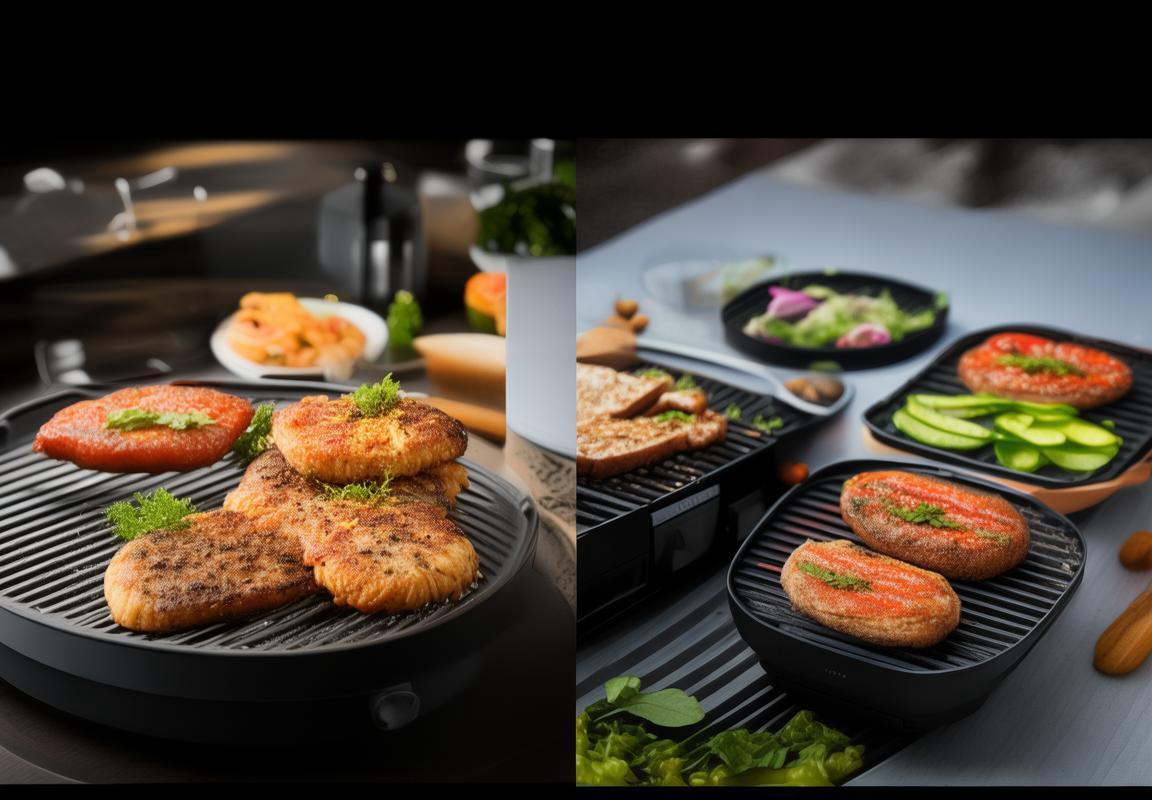
Key Trends in Contact Grill Demand
Contact grill demand has seen a surge in recent years, driven by several key trends that have reshaped the consumer landscape. These trends not only reflect changing preferences but also the evolving role of technology and health consciousness in kitchen appliances.
Grill enthusiasts are increasingly seeking convenience without sacrificing quality. The trend towards faster cooking times has propelled the popularity of contact grills, as these appliances offer a quick and efficient way to achieve that perfect sear and grill marks on food. The convenience factor is further enhanced by features like non-stick surfaces and easy-to-use controls, making contact grills a favorite among busy home cooks and casual grillers.
Health and wellness have become paramount in the kitchen, and contact grills have capitalized on this shift. With their ability to cook food with minimal oil, these grills are a hit among those looking to reduce their fat intake and promote healthier eating habits. The trend towards low-fat and low-calorie diets has made contact grills a go-to choice for health-conscious consumers.
Technology integration is another driving force behind the rise in contact grill demand. Smart features such as digital temperature controls, Bluetooth connectivity for remote operation, and recipe integration apps have become standard in many high-end models. These innovations not only enhance the user experience but also cater to the tech-savvy consumer who enjoys the latest kitchen gadgets.
Versatility is a key factor in the appeal of contact grills. Many models are designed to be used for a variety of cooking methods, including grilling, searing, and even panini pressing. This multifunctionality is particularly appealing to consumers who want to minimize the number of appliances in their kitchen while maximizing their cooking options.
The growing interest in outdoor cooking has also bolstered contact grill demand. As people spend more time at home, outdoor entertaining has become a popular way to enjoy meals with family and friends. Contact grills offer a portable solution for those who want to replicate the taste of grilled food in their own backyard or on a camping trip.
Environmental consciousness is influencing kitchen appliance purchases, and contact grills are no exception. As consumers become more aware of their carbon footprint, energy-efficient models that consume less power are gaining traction. Features like automatic shut-off and energy-saving modes are becoming standard, aligning with the broader market trend towards sustainability.
The trend towards personalized cooking experiences is also evident in the contact grill market. Customizable temperature settings and cooking surfaces allow consumers to tailor their grilling to specific food types and preferences. This level of customization is a testament to the growing desire for appliances that can cater to individual tastes.
Lastly, the influence of social media and celebrity chefs has played a significant role in shaping contact grill demand. With the rise of cooking shows and influencers, there’s a heightened interest in cooking techniques and gadgets. When chefs and influencers endorse contact grills, it can lead to a surge in consumer interest and sales.
In conclusion, the demand for contact grills is on the rise due to a combination of convenience, health concerns, technological advancements, versatility, environmental awareness, personalization, and the influence of media. These trends are expected to continue driving growth in the contact grill market, making it a key segment within the kitchen appliance industry.
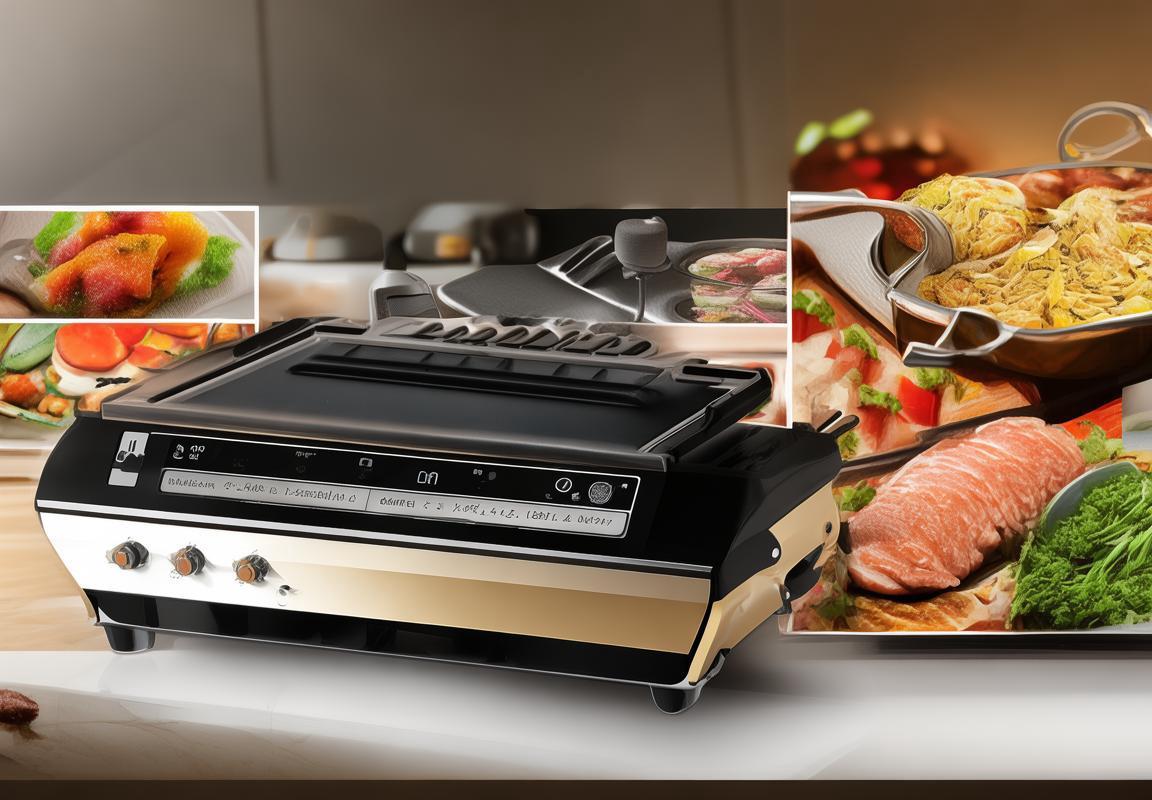
Choosing the Right Private Label Supplier: What to Look For
In the competitive landscape of kitchen appliances, selecting the right private label supplier is a pivotal decision. Here are several critical factors to consider when making this choice:
The Importance of Quality AssuranceQuality is paramount in the contact grill market. A reliable supplier must demonstrate a commitment to high standards, ensuring that every product meets stringent quality control measures. This includes not just the manufacturing process but also the materials used, which should be durable and safe for consumer use.
Customization and InnovationAs consumer preferences evolve, the ability to customize products is a significant advantage. A private label supplier should offer flexibility in design, allowing for unique branding and features that can set your product apart. Innovation in technology and design is also crucial, as it keeps up with the latest market trends and consumer demands.
Supply Chain ReliabilityThe reliability of the supply chain is non-negotiable. A supplier with a robust supply chain can guarantee timely delivery, minimizing the risk of stockouts and ensuring consistent availability of products. This also involves managing inventory efficiently to prevent overstocking or understocking issues.
Cost-Effectiveness and Pricing TransparencyCost is a major consideration for any business. A private label supplier should offer competitive pricing without compromising on quality. Transparency in pricing is essential, ensuring that there are no hidden costs that could impact your profit margins.
Certifications and ComplianceCertifications such as CE, UL, and RoHS are not just legal requirements but also a testament to a supplier’s commitment to safety and environmental standards. Ensuring that your supplier adheres to these certifications is crucial for maintaining your brand’s reputation and meeting regulatory demands.
Customer Service and SupportA good private label supplier should provide exceptional customer service. This includes responsive communication, technical support, and a willingness to work through any issues that may arise. A strong relationship with your supplier can lead to better collaboration and a smoother business process.
Technology and AutomationThe use of advanced technology and automation in manufacturing can lead to increased efficiency and reduced lead times. A supplier that invests in modern technology is likely to produce higher-quality products more quickly, which can be a significant advantage in the market.
Sustainability and Ethical PracticesConsumers are increasingly conscious of sustainability and ethical business practices. A private label supplier that prioritizes sustainability, such as using eco-friendly materials or employing ethical labor practices, can enhance your brand’s image and appeal to environmentally conscious consumers.
Scalability and Growth PotentialAs your business grows, your supplier should be able to scale their operations to meet your expanding needs. This includes the ability to handle increased orders, maintain quality, and possibly offer additional products or services that align with your brand’s future direction.
Market Understanding and TrendsA supplier that deeply understands the contact grill market can provide valuable insights and adapt to changing trends. They should be aware of the latest consumer preferences, emerging technologies, and market dynamics, which can inform your product development and marketing strategies.
Local and Global ReachDepending on your business model, a supplier with a local presence can offer advantages such as reduced shipping costs and faster response times. However, a global reach can also be beneficial for accessing a wider range of materials and resources, as well as for expanding into new markets.
In conclusion, choosing the right private label supplier for contact grills involves a comprehensive evaluation of their quality, customization capabilities, supply chain reliability, cost-effectiveness, certifications, customer service, technology, sustainability, scalability, market understanding, and reach. By carefully considering these factors, you can ensure that your partnership aligns with your business goals and contributes to your long-term success.

Benefits of Partnering with a Contact Grill Private Label Supplier
Partnering with a contact grill private label supplier can unlock a world of opportunities for businesses looking to enter or expand in the kitchen appliance market. Here are several benefits that make such a partnership worthwhile:
The Streamlined Production ProcessManufacturing contact grills can be a complex endeavor, requiring specialized equipment and expertise. By opting for a private label supplier, you can bypass the intricacies of production, allowing you to focus on your core business. This streamlined process means faster turnaround times and reduced overhead costs.
Customization and BrandingOne of the most significant advantages of working with a private label supplier is the ability to customize the product to match your brand identity. From the design of the grill to the packaging, you can ensure that every aspect reflects your brand’s values and aesthetics. This level of control helps in building brand loyalty and standing out in a crowded market.
Quality AssurancePrivate label suppliers are often committed to maintaining high-quality standards, as their reputation depends on the products they sell. They typically have rigorous quality control measures in place, ensuring that the contact grills meet or exceed industry standards. This not only protects your brand’s image but also provides peace of mind to your customers.
Cost EfficiencyPrivate label suppliers can offer cost advantages due to their scale of operations. They often have access to bulk purchasing power, which can lead to lower material costs. Additionally, their production processes are optimized for efficiency, reducing waste and further cutting down costs. This can translate into more competitive pricing for your customers.
Market ExpertisePrivate label suppliers are not just manufacturers; they are also experts in the market. They understand the latest trends, consumer preferences, and regulatory requirements. By leveraging their expertise, you can make informed decisions about your product range, marketing strategies, and distribution channels.
Flexibility in Product LineA private label supplier can offer a wide range of contact grills, from compact models for individual use to commercial-grade units for restaurants. This flexibility allows you to cater to diverse customer needs without the need to invest in multiple production lines or inventory.
Global ReachMany private label suppliers have a global presence, which means they can distribute your products to international markets. This can be particularly beneficial if you’re looking to expand your business overseas. Their established networks can help you navigate the complexities of cross-border trade and logistics.
Rapid Prototyping and IterationIf you’re developing a new product or want to make improvements to an existing one, a private label supplier can provide rapid prototyping services. This allows you to test and iterate your design quickly, ensuring that your product meets the market’s demands before going to full-scale production.
Marketing and Sales SupportIn addition to manufacturing, many private label suppliers offer marketing and sales support. They can help you develop packaging, create promotional materials, and even assist with sales strategies. This support can be invaluable, especially for new entrants to the market.
Long-Term RelationshipsA strong partnership with a private label supplier can lead to long-term relationships. This can be beneficial for both parties, as it allows for continuous improvement and innovation. Suppliers who have established trust with their clients are more likely to offer preferential terms and support.
In conclusion, partnering with a contact grill private label supplier brings a multitude of benefits, from cost savings and quality assurance to market expertise and customization options. By aligning with the right supplier, businesses can enhance their market positioning and increase their chances of success in the competitive kitchen appliance industry.

Case Studies: Success Stories with Private Label Contact Grills
In the world of private label contact grills, there are several success stories that showcase the potential of this niche market. From innovative designs to strategic partnerships, these case studies highlight the key elements that contribute to a successful venture in the private label sector.
A boutique retailer in the UK decided to venture into the contact grill market with a unique twist. Recognizing the growing trend of health-conscious consumers, they chose a supplier that offered a range of grills with adjustable heat settings and non-stick surfaces. By focusing on their target demographic, the retailer was able to tap into a market segment that was eager for a healthier cooking option. The result? A significant increase in sales and a loyal customer base that appreciated the retailer’s commitment to quality and health.
In the U.S., a well-known outdoor equipment brand expanded its product line to include a high-end contact grill designed for outdoor enthusiasts. By partnering with a private label supplier that specialized in durable, portable grills, the brand was able to maintain its reputation for quality while offering a product that appealed to its core customers. The grill’s sleek design and innovative features quickly caught the attention of outdoor lovers, leading to increased sales and positive brand recognition.
A small, family-owned kitchenware business in Germany found a unique opportunity in the private label market by focusing on eco-friendly contact grills. By collaborating with a supplier that provided sustainable materials and energy-efficient designs, the company was able to attract environmentally conscious consumers. The grills’ certifications and endorsements from green living magazines helped the business gain credibility and establish itself as a leader in eco-friendly kitchen appliances.
In the foodservice industry, a fast-casual restaurant chain sought to differentiate itself by offering a unique contact grill experience. They turned to a private label supplier that offered a customizable grill with a variety of attachments for different cooking techniques. This allowed the restaurant to create a diverse menu, from gourmet burgers to seafood dishes, all cooked to perfection on-site. The innovative approach drew in customers looking for a unique dining experience, and the chain experienced a surge in sales and customer loyalty.
A global e-commerce platform saw an opportunity to tap into the contact grill market by offering a wide range of private label options to its customers. By partnering with a supplier that could provide high-quality grills at competitive prices, the platform was able to offer a vast selection of grills with different features and price points. This strategy allowed the e-commerce site to cater to a broad audience, from budget-conscious shoppers to those seeking luxury grilling options.
In another example, a large retailer in the U.S. faced the challenge of competing with major brands in the contact grill market. They turned to a private label supplier that could offer a high-quality grill with unique features that set it apart from the competition. The supplier’s ability to produce a grill with advanced technology, such as Bluetooth connectivity for remote temperature control, allowed the retailer to create a product that appealed to tech-savvy consumers. This strategic move not only increased sales but also helped the retailer establish itself as a trendsetter in the industry.
These case studies demonstrate the power of private label contact grills in the market. By focusing on specific target audiences, leveraging innovative designs, and forming strategic partnerships with private label suppliers, businesses have found success in this niche sector. Whether it’s a boutique retailer, a well-known brand, or a global e-commerce platform, these success stories highlight the importance of understanding market trends and customer needs to create a winning product.
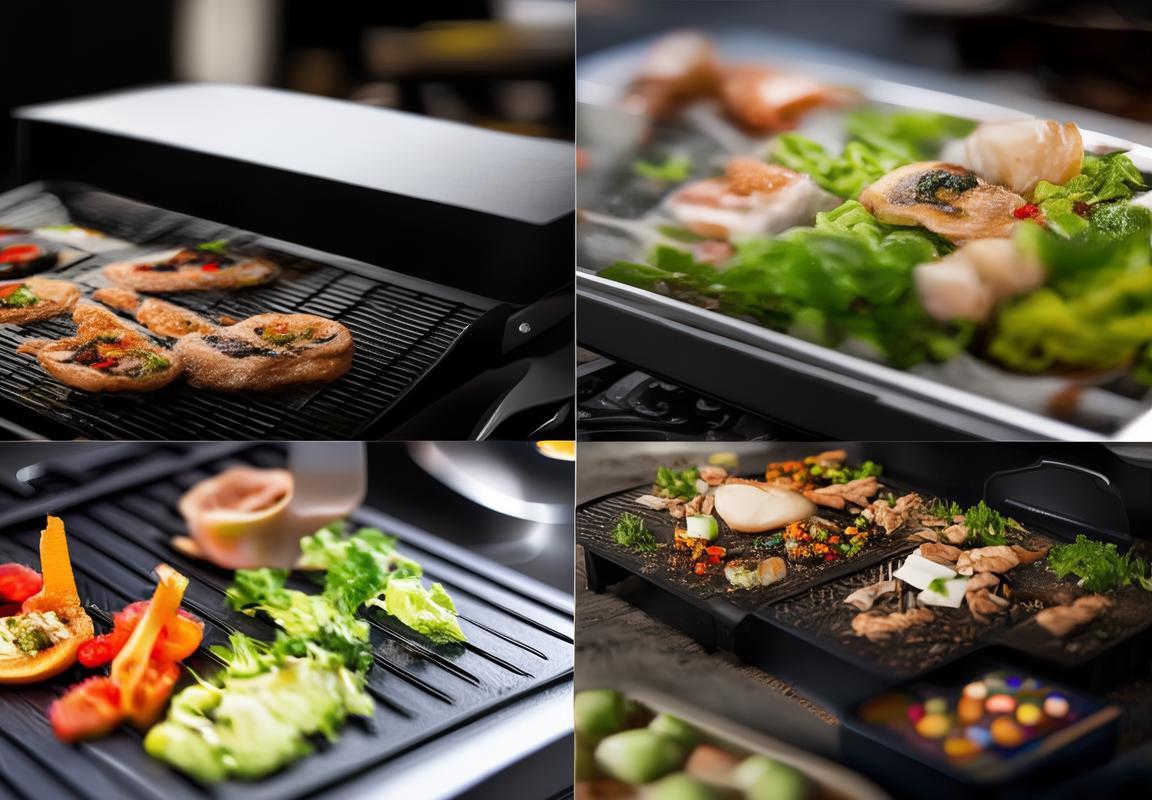
The Future Outlook: Predictions for the Contact Grill Private Label Sector
The contact grill private label sector is poised for significant growth, and several factors are contributing to this upward trajectory. From technological advancements to changing consumer preferences, here’s a glimpse into the future of this niche market.
Innovation in Design and FunctionalityThe future of contact grills is likely to be marked by a surge in innovative designs and functionalities. Smart grills that offer connectivity to mobile devices, allowing users to monitor and control cooking processes remotely, are becoming increasingly popular. These advancements not only enhance user convenience but also cater to the tech-savvy consumer who values smart kitchen appliances.
Health and Wellness FocusAs health consciousness continues to rise, there’s a growing demand for cooking methods that are healthier alternatives to traditional grilling. Contact grills, which can provide a juicier and more tender result with less fat, are perfectly positioned to meet this need. The future may see a rise in contact grills that come with features like adjustable heat settings and non-stick surfaces, further promoting healthy cooking habits.
Global Market ExpansionWhile Europe and the U.S. are currently key markets for contact grills, the future holds promise for expansion into other regions. Countries with a growing middle class and a preference for convenience cooking are likely to see a surge in contact grill sales. This global market expansion could be driven by aggressive marketing strategies and partnerships with local retailers.
Customization and PersonalizationPrivate label suppliers are increasingly offering customization options for contact grills. This trend is expected to continue, allowing businesses to offer products that align with their brand identity and customer preferences. Personalization can range from logo placement to unique features that differentiate the product in a crowded market.
Sustainability and Eco-Friendly PracticesConsumers are becoming more environmentally conscious, and this shift is influencing purchasing decisions. Contact grill private label suppliers that adopt sustainable practices, such as using recycled materials and reducing packaging waste, are likely to gain a competitive edge. The future may see a rise in eco-friendly contact grills that appeal to environmentally conscious consumers.
Increased Competition and Market SaturationWith the growing popularity of contact grills, competition is expected to intensify. This could lead to market saturation, with a wide array of products available to consumers. Private label suppliers will need to innovate and differentiate their offerings to stand out. The ability to adapt to market trends and consumer demands will be crucial for survival in a highly competitive landscape.
Regulatory Compliance and Safety StandardsAs the contact grill market expands, regulatory compliance and safety standards will become even more critical. Suppliers must ensure that their products meet international and local safety regulations to avoid recalls and maintain consumer trust. The future may see a rise in certifications and quality assurance programs that private label suppliers must adhere to.
Technology IntegrationThe integration of technology into contact grills is not just about connectivity; it’s also about predictive maintenance and predictive analytics. By collecting data on usage patterns and performance, suppliers can offer predictive maintenance services to extend the life of the product and reduce downtime for consumers.
Marketing and Branding StrategiesEffective marketing and branding will be pivotal for private label contact grill suppliers. As the market becomes more saturated, strong branding and targeted marketing campaigns will help differentiate products and build customer loyalty. The future may see a rise in influencer partnerships, social media marketing, and experiential marketing to engage consumers.
In conclusion, the contact grill private label sector is on the cusp of significant growth, driven by technological advancements, health and wellness trends, global market expansion, and changing consumer expectations. Suppliers that adapt to these trends, focus on innovation, and maintain a strong commitment to quality and sustainability will be well-positioned to thrive in the future market landscape.